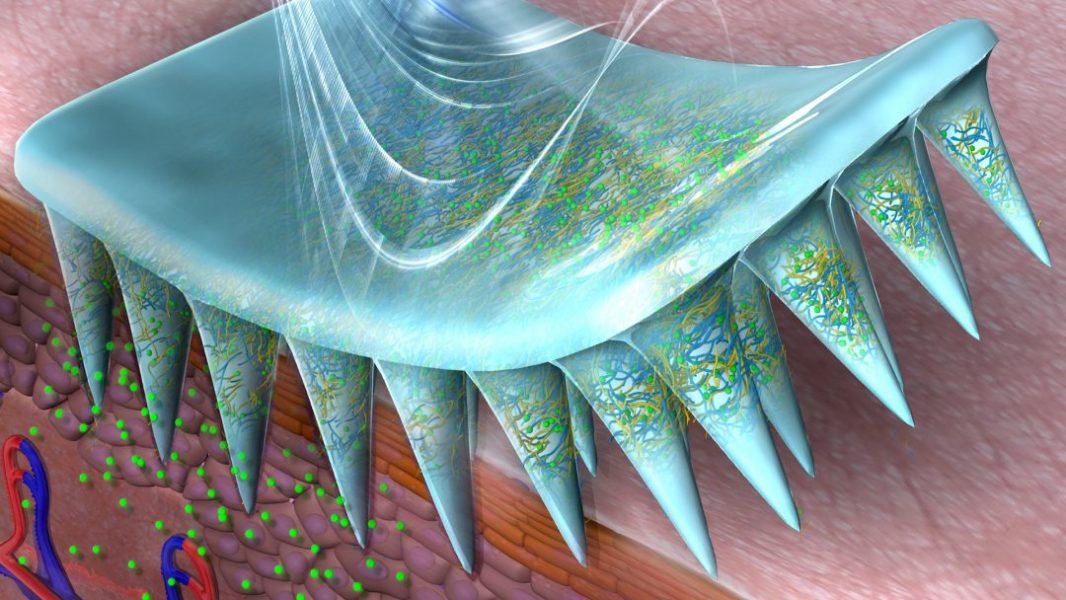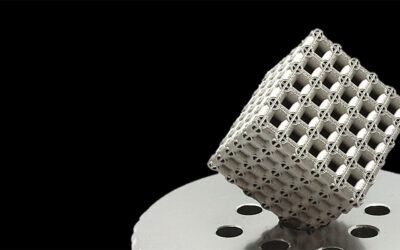Diabetes is a prevalent disease that afflicts people both young and old. Insulin remains the most effective treatment for managing diabetes, but self-administration can lead to inaccurate dosage, which can cause serious hypoglycemia.
In Advanced Functional Materials, Prof. Akira Matsumoto from Tokyo Medical and Dental University and the Kanagawa Institute of Industrial Science and Technology, along with his co-workers, report a stable, long-acting insulin delivery technology.
Dr. Siyuan Chen: “In order to achieve persistent glycemic control in a convenient, painless, and safe way, we developed an electronics-free, nanoparticle-free, and enzyme-free microneedle-array patch, which could serve as an artificial on-skin pancreas.”
This microneedle-array patch is composed of a boronate-containing hydrogel semi-interpenetrated by biocompatible and mechanically robust silk fibroin derived from silkworm cocoons.
The boronate hydrogel contained in the microneedles allows glucose-responsive diffusion control of insulin synchronized with a change in hydration on the gel surface—known as “skin layer” formation. The crystalline silk fibroin enhances the mechanical strength of the microneedles to facilitate skin penetration.
Prof. Akira Matsumoto: “The most remarkable advantage of this technology is that it is remarkably stable, while providing both fast and long-acting glucose-responsive insulin delivery. It can overcome the limitations associated with current technologies such as short duration of action, instability, and possible toxicity.”
To find out more about this silk-derived insulin delivery technology, please visit the Advanced Functional Materials homepage.

















